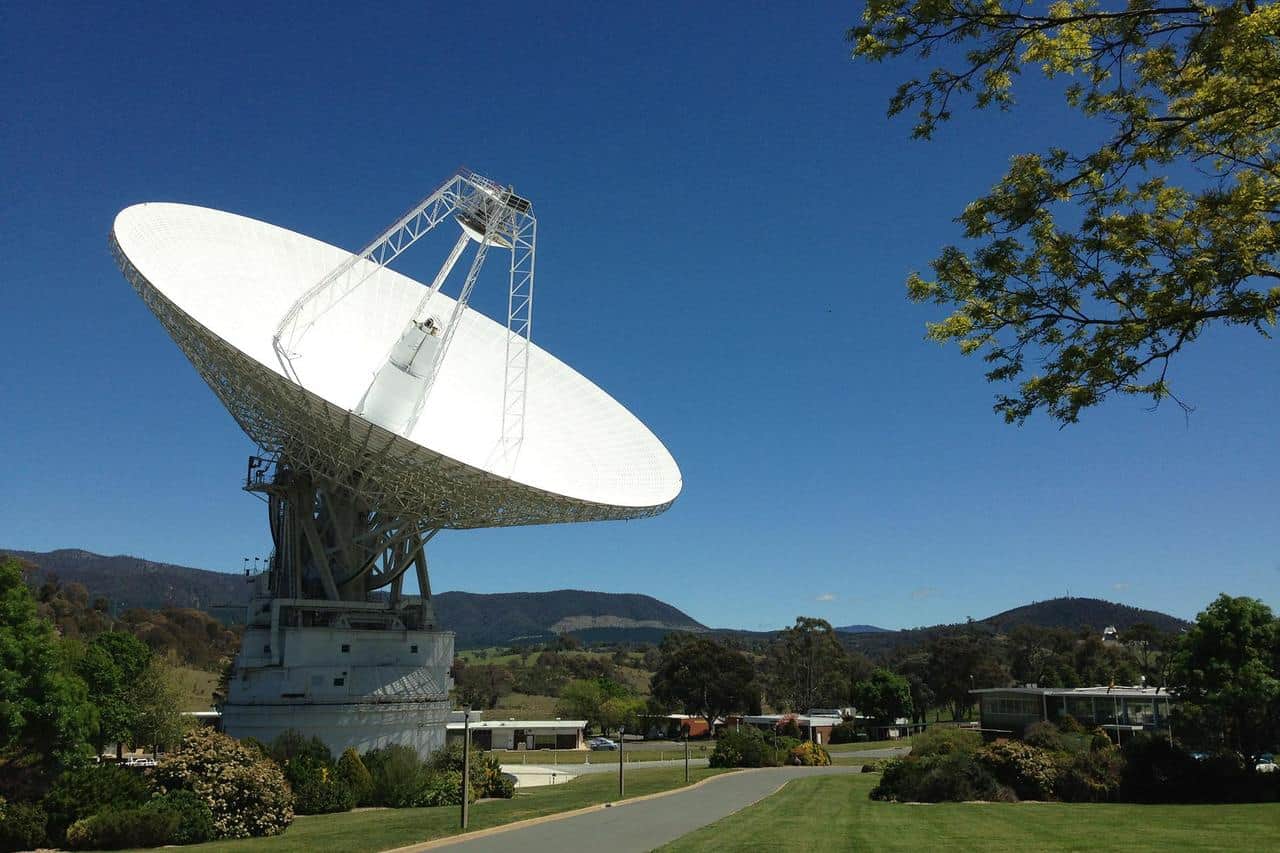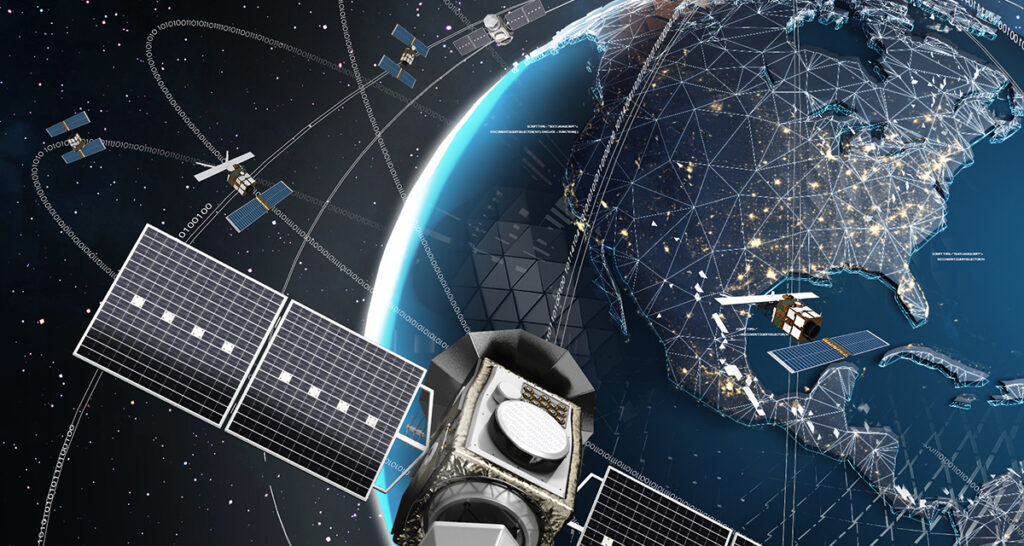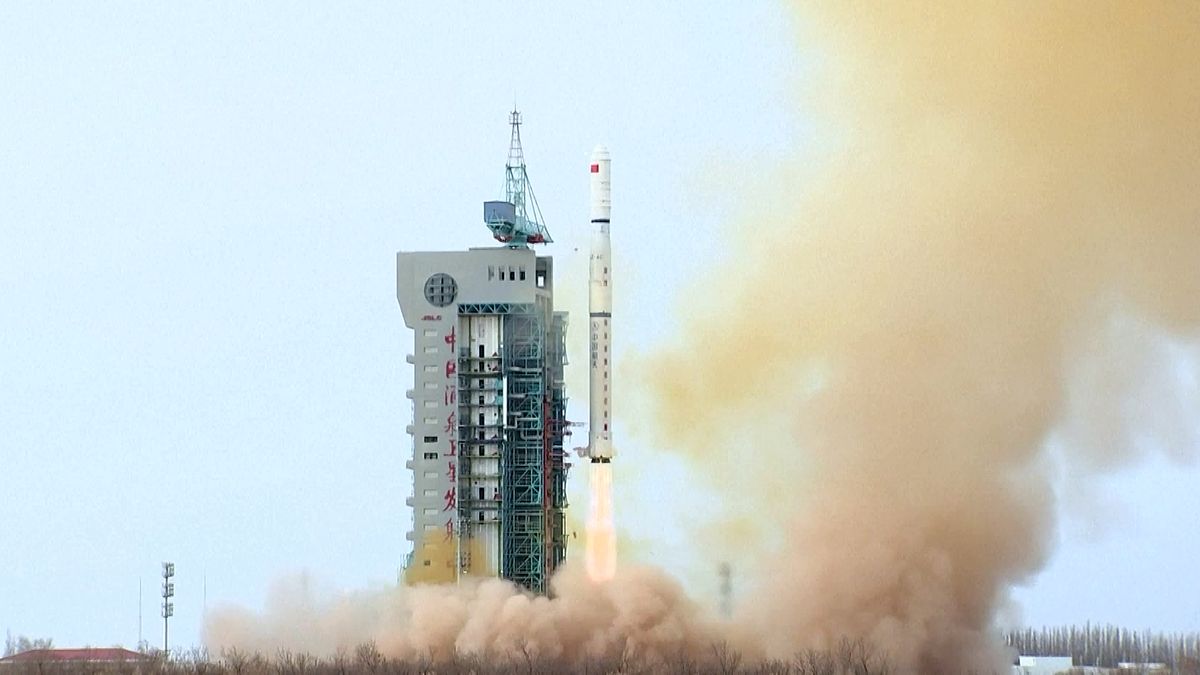The Intelligence Advanced Research Projects Activity (IARPA) is developing new scientific approaches to take high-definition-like pictures of geosynchronous satellites from the ground. The goal is to better account for the behavior and movement of these high orbiting objects in space.
To address this important need, IARPA and its research team are partnering with leading scientists at the U.S. Naval Research Laboratory to build a hypertelescope – a single large telescope made up of seven smaller individual ones. While the effort entails extensive science and engineering, the hypertelescope essentially works by collecting the light from smaller telescopes to produce a single, clearer image.
Were you following this:
JPMorgan Is Reportedly Testing Blockchain or DLT based Payments between Satellites Orbiting Earth

Are you stuck somewhere in outer space with utility bills to settle? Then you need not worry, because the satellites may be able to take care of them.
Umar Farooq , CEO at JPMorgan’s blockchain or DLT unit Onyx , noted that outer space was a good place to try out these ideas and technologies.
* * *
“The idea was to explore IoT payments in a fully decentralized way. Nowhere is more decentralized and detached from earth than space. Secondly we are nerdy and it was a much more fun way to test IoT."
Chinese Mars mission is now orbiting the Red Planet - Axios

Why it matters: China is now the sixth nation or space agency to operate a spacecraft in orbit around Mars.
What's happening: The mission — called Tianwen-1 — is expected to gather data about the red world from orbit. Eventually, the spacecraft will release a rover down to the Martian surface.
The big picture: China is a leader in space today. The nation has a human spaceflight program, operates satellites and has plans to build an Earth-orbiting space station in the near future.
Sputnik Vaccine Orbits Slovak Politics | Reporting Democracy

In January, Prime Minister Igor Matovič was still expressing confidence that Slovakia would have enough Pfizer/BioNTech and Moderna vaccines for most of its adult population, and would only use the Sputnik V vaccine if it was approved by the European Medicines Agency (EMA). But by mid-February, he had changed his tune and become a firm proponent of using the Russian vaccine without EU authorisation.
Matovič told the media that on January 18 the Slovak government had ordered extra vaccines from Pfizer and Moderna that would enable the state to inoculate 85 per cent of the adult population, or 3.7 million people. The AstraZeneca vaccine was pending EMA approval at that time, but has since become part of the vaccination program in Slovakia when it was recommended for use on January 29.
In case you are keeping track:
Comet Makes a Pit Stop Near Jupiter's Asteroids | NASA
Astronauts Kate Rubins and Victor Glover conducted a Sunday spacewalk

Astronauts Kate Rubins and Victor Glover Jr. began their spacewalk outside of the International Space Station at 6:12 a.m. ET and ended at 1:16 p.m. on Sunday.
The spacewalk assisted with a continuation of upgrades for the space station orbiting Earth. The activity lasted for seven hours and four minutes.
Both NASA crew members are veteran spacewalkers at this point. Glover had already conducted two spacewalks since arriving at the space station in November. Sunday’s was his third.
Managing Satellite Data Across Constellations And Orbits « Breaking Defense - Defense

The thousands of satellites orbiting Earth are hard at work. They help people communicate and navigate from point A to point B. They help spot wildfires, predict the weather and support defense networks. But their effectiveness has a limit: the speed at which people on the ground can access and interpret the data they produce.
Almost every one of the satellites on orbit today has a unique ground control station to collect and process its data. And, with 1,100 satellites set to launch annually by 2025, according to MIT Technology Review , the cost and technical challenge for operators across governments and industry could be overwhelming.
China just launched three more Yaogan 31 reconnaissance satellites to orbit | Space

China successfully sent three reconnaissance satellites into orbit Tuesday (Feb. 23), according to media reports.
A Long March 4C rocket carrying the Yaogan-31 satellites flew into space from Jiuquan Satellite Launch Center in the Gobi Desert at 9:22 p.m. EST (0222 GMT, or 10:22 a.m. local time Wednesday, Feb. 24), according to a report from China's state news provider CCTV .
"Having entered their planned orbits, the satellites will be used for electromagnetic environment surveys and other related technology tests," CCTV added in the short report.
No comments:
Post a Comment